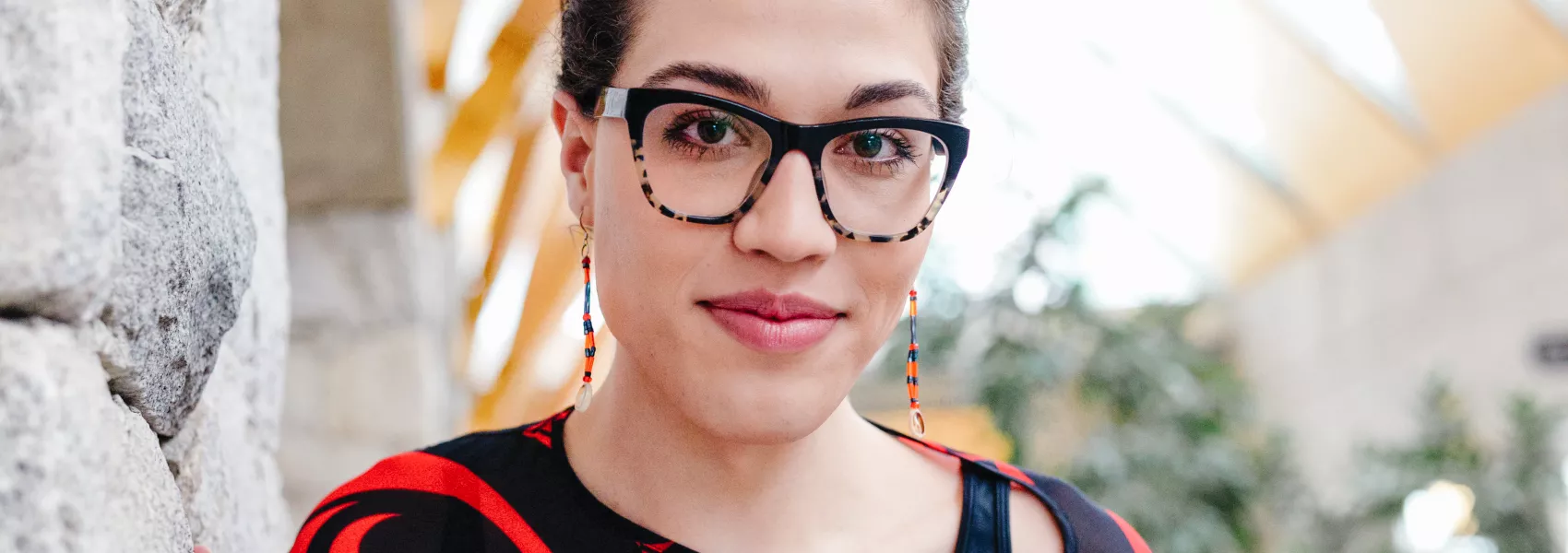
First Nations Studies
Study the languages, laws, cultures, histories and government structures of Indigenous peoples in Canada.
Prepare for a rewarding career in community service, law, culture or future graduate studies that encourages connection to community and decolonization.
120 credits, 4 Years,
Part-time available
Program Details
First Nations Studies is a valuable part of any good undergraduate education in the contemporary world. It is an appropriate degree if your career goals include education, business, public administration, law, communications, cultural property management, social services, and various other fields of expertise.
You will understand the experiences of Indigenous peoples in Canada—past, present and future. Prepare for a mix of social science courses that include traditional biology and history studies complemented by specific First Nations subjects such as self-government, reconciliation, resource management and decolonization.
Apply for admission to graduate programs in several academic disciplines and to many professional programs upon completion of your undergraduate major in First Nations Studies.
Career Paths
- Treaty negotiator
- Economic development officer
- Band manager
- Public administration for municipal, provincial and federal levels
Why at UNBC
- Focus on First Nations communities in northern B.C. through experiential learning
- Study at the first university in B.C. to offer a Bachelor’s degree in early recognition of this growing and critical area of study
- Pursue a multi-disciplinary degree suitable for a career in law, education, health care, and many other fields
- Learn from award-winning faculty and Elders recognized for groundbreaking and respectful research, engagement and curriculum design
'En Cha Huná
UNBC’s motto, from the Dakelh (Carrier) Elders, reminds us that all people have a voice and a viewpoint. Interpreted as “respecting all forms of life,” 'En Cha Huná encapsulates the spirit of academic freedom, respect for others, and willingness to recognize different perspectives.
Subscribe for updates
Receive personalized emails about your programs of interest, scholarships, application dates and more!
Admission Requirements
High School Requirements (applicable for B.C. and Yukon)
Overall average of 65% minimum in the following:
- English Studies 12 or English First Peoples 12
- Approved Academic Grade 12 Course
- Approved Academic Grade 12 Course
- Approved Academic Grade 12 Course
- Additional Grade 12 Course (Elective or Academic)
Domestic Admission Requirements
View the full list of Approved Academic Grade 12 Courses
More high school admission requirements (including out-of-province, International Baccalaureate and Advanced Placement)
Transfer Requirements
- Have attempted at least 15 credit hours of post-secondary transferrable coursework from a recognized institution
- Be in good academic standing at the transfer institution
- Have a 2.0 GPA from the most recent 30 credits prior to transfer
- For the purposes of verifying any outstanding first-year prerequisites, high school transcripts may be requested
International Admission Requirements
International Student Requirements
- Meet UNBC's English language requirements
- Meet the international admission requirements by country or meet the admission with a General Certificate of Education (or equivalent)
- Complete the required high school course equivalencies outlined in the Domestic tab prior.
Transfer Requirements
- Have attempted at least 15 credit hours of post-secondary transferrable coursework from a recognized institution
- Be in good academic standing at the transfer institution
- Have a 2.0 GPA from the most recent 30 credits prior to transfer
- For the purposes of verifying any outstanding first-year prerequisites, high school transcripts may be requested
Tuition and Fees
(30 credit hours, 10 courses)
| Domestic | International | |
|---|---|---|
| Tuition* | $5,870 | $24,770 |
| Student Fees* | $1,185 | $1,185 |
| Books* | $1,700 | $1,700 |
* Tuition, fees and books are subject to change and vary among programs.
Scholarships, Bursaries and Awards
View the hundreds of available scholarships, bursaries, and awards.
- 1 in 4 students receive a UNBC financial award.
- $3,500,000 in financial awards given each year.